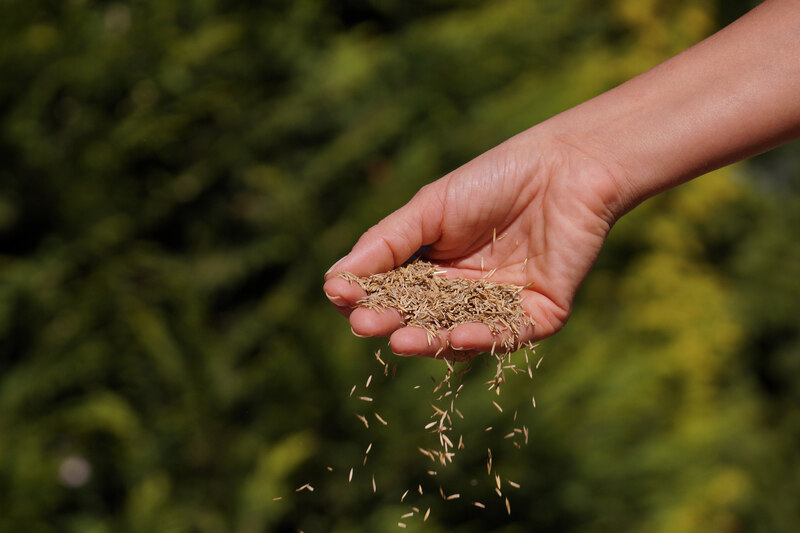
When is the best time to plant grass seed in New Jersey? Early fall, particularly September, is your golden window.
With cool evenings, moderate daytime temperatures, and the promise of fall rain showers, September is a welcome mat for your grass seed. In this article, learn the different types of cool-season grasses you can seed in the Garden State and discover some tips to help your lawn go from “meh” to marvelous.
Best Time to Plant Grass Seed in New Jersey
If you want a thriving lawn in New Jersey, cool-season grasses are your way to go. These grass varieties like the cooler weather of spring and fall, but tend to slow their growth during summer and winter. The ideal time to plant these grasses is when soil temperatures hover between 60 and 75 degrees Fahrenheit.
Here are some guides for the best grasses for New Jersey:
- Guide to Growing Kentucky Bluegrass
- Tall Fescue Lawn Maintenance Guide
- Guide to Growing Perennial Ryegrass
- Guide to Growing Fine Fescues
Tips for Planting Grass Seed in New Jersey

Planting grass seed in New Jersey isn’t just about timing; it’s also about taking the right steps to ensure your lawn grows healthy. Here are some key tips to keep in mind:
- Choose high-quality seeds: Start with the best foundation by picking seeds with a germination rate of over 85%. This ensures that most of what you plant will grow, giving you a thick, even lawn.

- Test your soil: Before seeding, get to know your soil. Testing it will tell you if there are any issues that need to be addressed, like nutrient deficiencies or improper pH levels. Here’s a guide on “Why, When, and How to Test the Soil pH of Your Lawn.”
- Amend the soil if necessary: Depending on your soil test results, you might need to add some compost to boost organic content, lime or sulfur to adjust pH, or fertilizers to improve fertility.
- Avoid herbicides before planting: Hold off on using herbicides for at least a month before planting. Any leftover chemicals could prevent your seeds from germinating.

- Aerate and dethatch if necessary: If your lawn is compacted or covered in thatch, aerate and dethatch to give your seeds the best chance to establish strong roots. Here’s a guide on when to aerate your New Jersey lawn.
- Water regularly: Once you’ve planted the seeds, keep them moist by watering two to three times a day until they sprout.
- Mow when ready: Wait until your new grass reaches 3 to 4 inches tall before giving it its first mow.

- Avoid foot traffic: Resist the urge to walk on your new lawn until it’s well-established. The young grass is delicate and can easily be damaged by foot traffic.
FAQ About Planting Grass in New Jersey
Can I plant grass seed in November in New Jersey?
You can dormant seed your grass in November, allowing the seeds to settle into the soil over winter and be ready for optimal growth in the spring. Read more in this article: “What is Dormant Seeding? And How to Dormant Seed Your Lawn.”
How much does it cost to plant grass seed?
Seeding a lawn can cost between $0.09 and $0.19 per square foot. Most homeowners spend from $592 to $1,768. The final cost of seeding your lawn will depend on factors like the size of your yard and the specific challenges of the job.
Can I plant grass seeds without any preparation?
You can, but for the best results, it’s wise to prepare your soil first. Start by testing your soil and making any necessary amendments. Before seeding, be sure to clear away any weeds or debris.
When to Hire a Pro
By following the right timing and some extra tips, your New Jersey lawn will look as nice as a garden at Liberty State Park. However, if you find that maintaining that perfect lawn is more than you bargained for, you can contact a local lawn care pro. They’ll help keep your lawn looking sharp, so you can relax and enjoy your personal Jersey greenery.
More Lawn Care and Landscaping Resources for New Jersey:
Main Image Credit: House in Chatham, New Jersey / Doug Kerr / Flickr / CC BY-SA 2.0